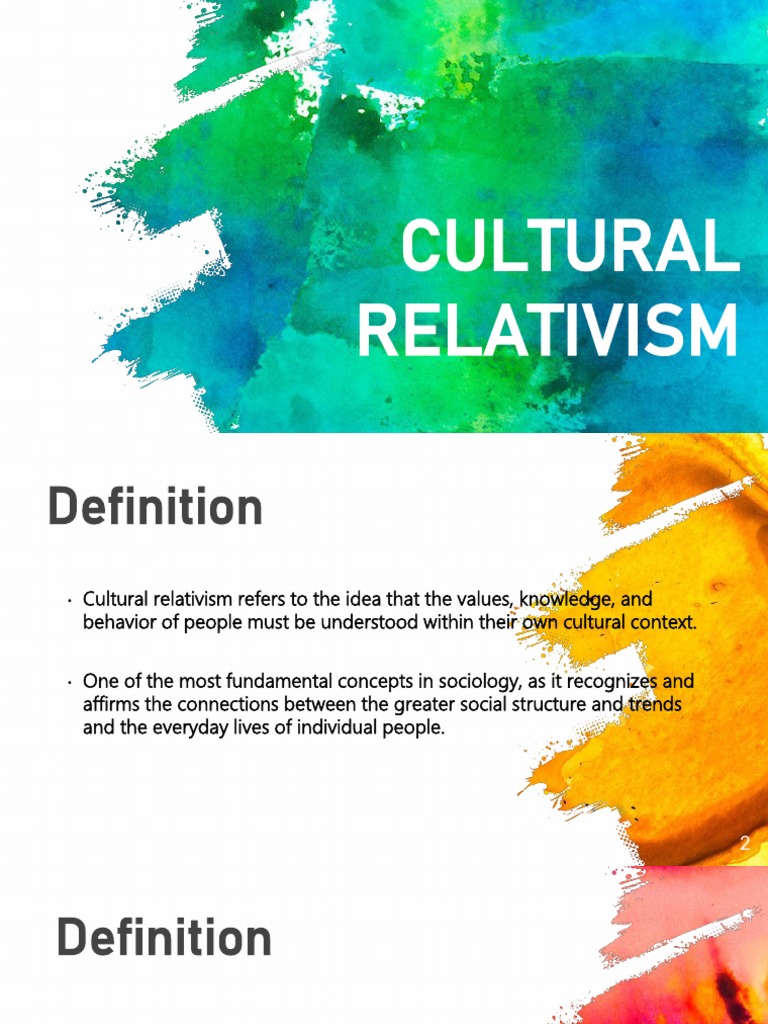Cultural relativism is the belief that the values, beliefs, and practices of individuals must be understood in the context of their own culture, rather than being judged against the standards of another culture. This notion posits that all cultures are of equal worth and that one should avoid imposing external judgments on those cultural norms and practices. As the world becomes more interconnected, the implications of cultural relativism become increasingly pertinent. But does this philosophy hold up in the context of global issues such as human rights or environmental stewardship? What happens when the practices of one culture clash with the universally acknowledged principles of justice or sustainability?
Cultural relativism encourages the examination of values and behaviors within their cultural frameworks. It underscores the idea that each culture has developed its moral codes and social norms through historical processes that shape their worldview. Consider, for example, dietary practices that vary significantly across cultures. While some societies might prioritize vegetarianism based on religious or ethical beliefs, others might engage in practices that include meat consumption, often justified by different cultural narratives of sustenance and tradition.
In exploring the complexities of cultural relativism, one must also consider the implications of ethical imperialism. This term refers to the tendency of individuals or groups to impose their cultural values on others from a perceived moral high ground. A playful question arises: If a cultural worldview holds that certain environmental practices are acceptable, can one culture ethically admonish another for its unsustainable habits? This inquiry catalyzes a deeper examination of the principles underlying cultural relativism.
One argument in favor of cultural relativism is that it fosters tolerance and understanding among diverse populations. In an increasingly globalized world, appreciating the backgrounds and philosophies of different cultures can lead to more peaceful coexistence. Yet, this tolerance can also pose a challenge when confronted with egregious human rights violations that may be rationalized by cultural beliefs. For instance, practices such as female genital mutilation or honor killings are often defended on cultural grounds. Do such practices deserve the protections offered by cultural relativism, or do they require intervention based on universal human rights standards?
The debate on cultural relativism draws from a rich intellectual history, spanning various disciplines, from anthropology to philosophy. Anthropologists of the early 20th century championed cultural relativism as a tool for comprehensively studying societies without the bias of Western ethnocentrism. However, this perspective has prompted substantial criticism, especially concerning the potential for cultural relativism to excuse harmful practices that adversely affect individuals’ wellbeing.
Moreover, contextualizing cultural practices within their societal frameworks does not negate the possibility of impactful change. Activism within cultures can lead to the transformation of certain practices through grassroots movements that honor tradition while advocating reform. For example, in some regions, indigenous groups have successfully blended traditional ecological knowledge with modern environmental practices, thereby promoting sustainability. This synthesis illustrates that cultural practices are not static but can evolve over time.
In the context of environmental policy, cultural relativism contends that different societies will have diverse approaches to sustainability based on their historical, social, and cultural contexts. Land stewardship in Indigenous cultures is often viewed through a lens that emphasizes harmony with nature, contrasting sharply with industrialized societies that may prioritize economic growth over ecological balance. This divergence raises yet another thought-provoking question: Can achievement in environmentalism be viewed as a universal aspiration, or must it be localized based on cultural perspectives?
To further complicate matters, the phenomena of globalization and climate change complicate the interplay between cultural relativism and environmental ethics. Many developing nations contribute minimal amounts of greenhouse gas emissions compared to their developed counterparts, yet they often bear the brunt of climate change impacts. This raises moral dilemmas pertinent to cultural relativism—are emerging economies justified in prioritizing economic advancement that may imperil the environment, given their historical context of exploitation and poverty? Conversely, do the industrialized nations have the authority to dictate the developmental pathways of these societies?
The challenge then becomes to balance cultural understanding with ethical responsibility. While it is crucial to recognize the complexity of cultural practices, it is equally important to advocate for universal environmental ethics that promote collective responsibility towards the planet. Intervention may be necessary, yet this must be conducted with sensitivity to cultural contexts to avoid neocolonial attitudes.
As we consider cultural relativism, it’s essential to acknowledge that pluralism in values must coexist with conscientious ethical frameworks tailored for an evolving global landscape. Leadership in addressing climate change will not emerge from a singular worldview but rather from a multitude of diversified cultural interpretations. By promoting dialogue among cultures, we can work towards harmonizing practices that respect the diverse ways societies relate to the environment.
In conclusion, cultural relativism invites deep reflections on the boundaries of tolerance, ethical judgments, and the ramifications of cultural practices. The playful question of when cultural practices should be challenged remains unresolved, representing the complexities that arise at the intersection of culture, ethics, and global issues. Engaging in these discussions is imperative as humanity seeks collaborative solutions to the urgent challenges posed by climate change and beyond.
